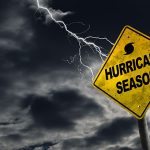The Damage Tornadoes Can Cause to Your Home
The damage tornadoes can cause to your home and property can leave you in a bad situation. Tornadoes are one of the most dangerous and costly natural disasters in the United States.
Being insured against the damage a tornado can cause is essential for homes in areas prone to these harbingers of disaster. Many parts of the United States are free from the dangers tornadoes cause. Still, the midwestern states, especially in the Tornado Alley region, should be prepared for the possibility of experiencing this kind of natural disaster.
These disasters feature high winds, heavy rains, and intense hailstorms that can wreak havoc on your property. It is best to be informed of the danger these events hold and how your home and property will be affected.
Tornado Facts: What You’re Up Against
Tornados form where currents of warm air meet cold air. They are most common in Tornado Alley because that area is the mixing place for cold air from Canada and warm air from the Gulf of Mexico.
When air fronts with different temperatures collide, they don’t mix. These masses of air swirl around each other, causing strong winds. The most violent action occurs in the sky. These combing fronts create towering stormclouds powered by massive updrafts and downdrafts.
These storms are the precursor to a Tornado.
Occasionally, the swirling wind forces will spiral to the ground. The whirling wind creates a funnel cloud that, when it touches down, creates what we know is a tornado.
The storms accompanying tornadoes can also cause:
- Dark, towering storm clouds
- Strong gusts of wind
- Heavy rainfall
- Hail of varying size
- Intense lightning and thunder
These storms can cause a lot of damage even without forming a tornado. During one of these storms, your property is at risk.
External Damage: How Tornadoes Can Damage Your Yard?
A fully formed tornado can create winds ranging from 65 mph to over 200 mph. The winds from the funnel cloud are the most damaging part of the storm. They can destroy property in your yard, especially if it is unsecured.
The things you are most at risk of losing outside your home include things such as:
- Carports
- Sheds
- Trampolines
- Pools
- Trees
- Yard decorations
- Play sets
- Other external structures
Strong winds have been known to lift objects like these and carry them to other places. Older and weaker structures may disintegrate under varying forces of winds. For example, an old pergola could bend and snap under the strain of heavy winds.
Even though structures like pergolas, gazebos, and sheds are typically rooted in the ground, they can easily be torn apart, leaving studs or posts firmly anchored to the ground.
Home Damage: How Tornadoes Can Affect Your Home?
If you are in the path of a tornado, your home is at serious risk of storm damage. The winds and rain from tornadoes and their storms can cause tens of thousands of dollars and more in damage.
Here is what is at risk with each part of your home.
Storm Damage to Carport/Garage
Free-standing carports are not technically considered part of your home. If these structures are attached to your house, however, they can cause damage. Carports not securely anchored to the ground can buck against your home, damaging the siding, roof, and windows.
A garage is a different circumstance. Many garages are built into homes. The garage door is the most susceptible to damage. These are typically made out of wood, aluminum, or fiberglass – light materials that are easy for motors to lift.
The average garage door is unsupported, especially in the center. Strong wind or flying debris gusts could strike and buckle your garage door in the weak center.
Home Roof Storm Damage
The roof of almost every home has shingles. Asphalt shingles can protect against the elements for decades. They will outlast most storms and other natural elements due to their composition.
Natural disasters like tornadoes test roof shingles to the extreme. Winds from smaller storms usually aren’t enough to damage shingles, but the strong winds of a tornado might be able to.
Shingles rest in layers on top of each other, adding to their strength and effectiveness. If the wind is strong and direct enough, it can lift shingles. Once a significant amount of the shingles’ underside is exposed, strong winds from a tornado can rip substantial chunks off your roof.
Storm Damage to Siding
Many homes have siding. Like your shingles, siding provides layered protection against the elements. To withstand the wind and rain, the materials siding is made from must be able to withstand significant punishment.
Their durability does not make siding materials immune from storm damage. Whatever material your siding is made from, be it wood, metal, or vinyl, hard impacts from flying debris can dent, crack, or entirely strip the siding from your house.
If the storm creates a gap in your siding, winds can rip into the damaged area and cause more damage.
Window Damage by Winds and Debris
Your windows are one of the most vulnerable parts of your home. It is relatively easy for high winds and flying debris to cause damage. Windows are relatively weak compared to siding and shingles, but they are often much less exposed.
Many homes in areas with high winds can be equipped with storm shutters to protect them from the hard elements. It may be a wise investment for areas prone to get tornadoes.
Get the Most From Your Insurance With Hudson Douglas Public Adjusters
When unprecedented disasters wreak havoc on your home, you can’t afford to front the costs alone. This is why most homeowners have insurance. When disaster strikes, you are financially prepared.
Sometimes working with an insurance company to get the most out of your insurance can be difficult. Maybe the insurance company insists your policy doesn’t cover something, or perhaps you feel the adjuster undervalues the damage to your home.
These situations are precisely why we exist. We help policyholders get the most out of their insurance. Contact us today to see how you could benefit from our public adjusters!




